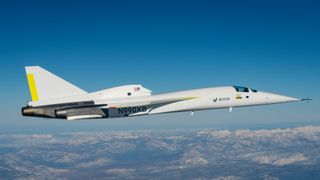
Giant phantom jelly: The 33-foot-long ocean giant that has babies out of its mouth
Giant phantom jellies were discovered in 1899 and since then have only been spotted around 120 times.

By Ben Turner published
Astronomers have discovered two strange objects that could be young stars — except they're completely surrounded by ice.

By Jamie Carter last updated
Worlds will align for a "planetary parade" in January, with four bright and easily visible to the naked eye. But an even better view arrives in February and March. Here's what you need to know.

By Clarissa Brincat published
A study suggests that catching COVID-19 significantly raises the risk of developing ME/CFS (formerly called "chronic fatigue syndrome"), a typically lifelong condition that can be debilitating.

By Sascha Pare published
The first dinosaurs may have evolved near the equator, and not in the southwest of the supercontinent Gondwana, as researchers previously assumed due to an abundance of fossils in places like Argentina and Zimbabwe.

By Emily Cooke published
Parents are more likely to favor daughters and more-agreeable children, new research suggests, although the findings may only apply to people from certain demographics.

By Victoria Atkinson published
Scientists have found an elusive third form of magnetism that could help solve a longstanding puzzle about superconductors.

By Guido Tonelli published
"As yet, nobody has managed to understand what gives rise to this strange phenomenon, and explaining dark energy remains one of the most formidable challenges of modern science."

By Patrick Pester published
Researchers unveiled a super-strong nanoscale material made from the first two-dimensional mechanically interlocked polymers. The material resembles medieval chainmail at the molecular level and could be used in body armor.

By Ben Turner published
Scientists in Japan have demonstrated a new method to create hydrogen fuel without emitting greenhouse gases. But key steps to improve its efficiency remain for it to be commercially viable.

By Keumars Afifi-Sabet published
Boom Supersonic's XB-1 demonstrator craft could become the first commercial jet to break the sound barrier since Concorde after acing its 11th test and reaching 0.95 Mach at low altitudes.

By Keumars Afifi-Sabet published
The world's fastest supercomputer 'El Capitan' can reach a peak performance of 2.746 exaFLOPS, making it the planet's third exascale computer.